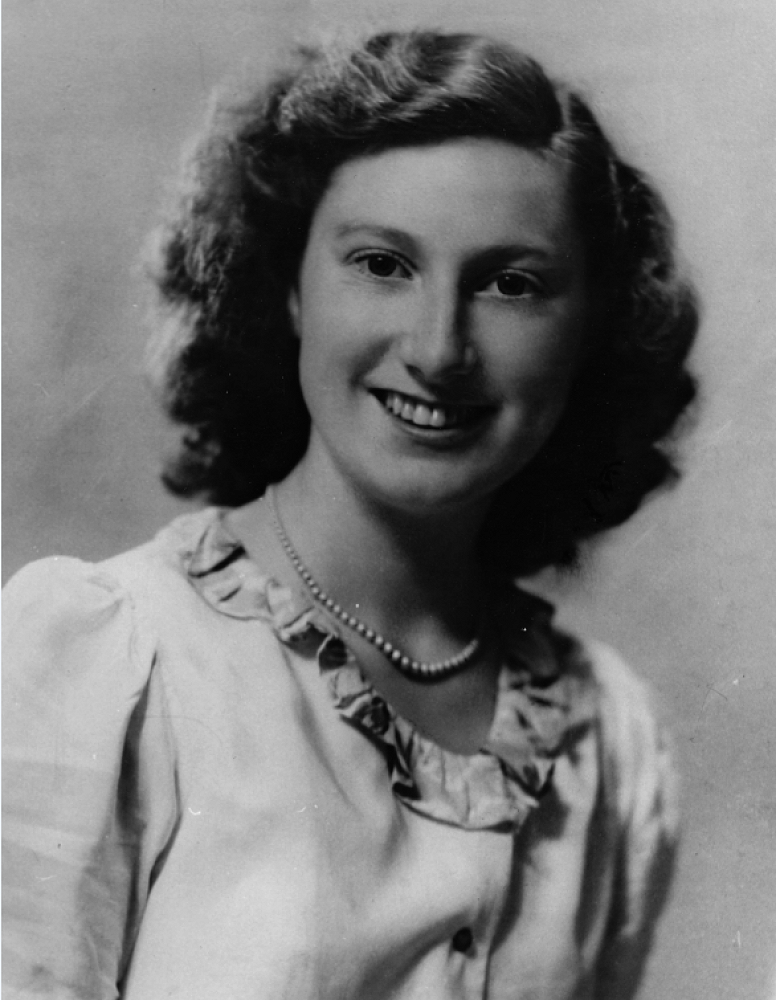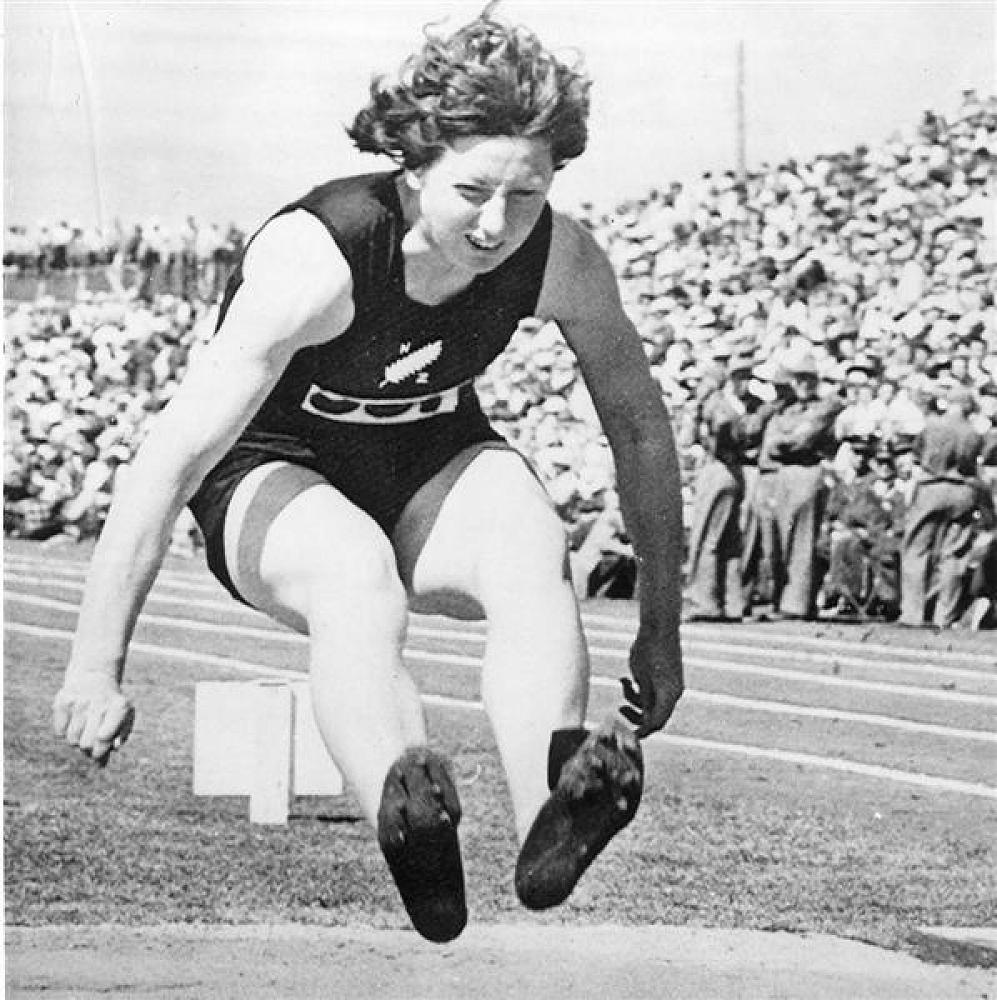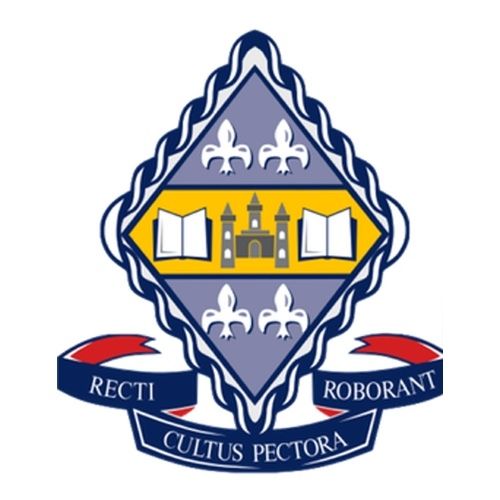
Principal's Report
During the holidays one of our most well known Alumni passed away.
Yvette Corlett (nee Williams) was the first New Zealand woman to win an Olympic Gold medal. Yvette achieved this feat in the Long Jump event at the 1952 Helsinki Olympics. I had the privilege of attending Yvette’s funeral and spoke at it on behalf of the school. The following account comes from this speech and from what I spoke to students about at assembly on Tuesday of this week.
Yvette Williams attended Otago Girls’ from 1942 to 1945. These were of course, war years and this impacted hugely on life at school. During Yvette’s time at OGs tea and sugar rationing was introduced, exercise books were to be used as “economically as possible” and girls at the senior dances were allowed to wear short frocks instead of long ones in light of the shortages of fabric that existed. Practical gardening was introduced to the syllabus and girls knitted balaclavas and sent parcels to soldiers and prisoners-of-war. Like every other student Yvette was required to carry an identification label sewn into her gym-frock, cotton wool for her ears, and a cork or rubber to bite on in case of air-raids. Students practised evacuations to their homes or a nearby park.
But more regular activities took place too with the school having a gardening circle, a ramblers club, and a combined services league. School sports were held annually and included tabloid events and relay races. There were interform drill competitions and an annual Shakespeare competition.
Outdoor basketball (what we now call netball) was very popular with strong inter-form competitions and inter-school exchanges all over Otago.
The school was also affected by infantile paralysis, or polio, epidemics, which forced closure from time to time.
This was the context in which Yvette was immersed during these years and in which she excelled. Yvette started in IIIAL in 1942, winning the class prize that year. This resulted in her being moved to the top academic class IVS the following year (the S believe it or not standing for ‘special’). Yvette also won the Clark Embroidery Shield in her first year - embroidery being a compulsory subject back then. In 1944, when Yvette was in the fifth form, a new principal was appointed, new publications in the library included Readers’ Digest and Popular Mechanics, and Yvette made the A Basketball team. In 1945 she was appointed to the role of class Sports Captain, played in the A Basketball team again and gained School Certificate. School magazines of the time, however, give no indication as to her potential athletic ability which clearly blossomed on leaving school.
In 1952, after her Olympic success, Yvette returned to OGs where she spoke students and cemented her position as a role model. Not only did Yvette win an Olympic Gold, she won numerous medals at Empire Games and held national titles over multiple years in Shotput, Discus, Javelin, 80m hurdles and, of course long jump. Yvette was named New Zealand Sportsman of the Year. She returned again in 1954 after competing in the Empire Games and spoke at our annual prizegiving in 1999. Her last visit occurred in 2009 when we were honoured to have her as a guest at the unveiling of our Olympic honour board.
Otago Girls’ prides itself on being a school of firsts. We were the first state secondary school for girls in the Southern Hemisphere. Among our ex-girls are the first New Zealand woman to become a lawyer, Ethel Benjamin, the first New Zealand woman to practice medicine, Margaret Cruickshank and, of course, the first New Zealand woman to win an Olympic gold medal, Yvette Williams.
When we introduced our House system in 2014, the decision to name the houses after ex-girls was an easy one. Deciding on who these ex-girls should be, not so much. We looked to our ‘firsts’ and sought to reflect a range of disciplines. However we received advice from numerous sources that we should be wary of choosing people who were still alive, as it could be very awkward if they did something disgraceful subsequent to their appointment, or if skeletons emerged in the future. But we felt we were safe with Yvette and we were delighted when she told us via a phone-call, that she would be happy to have a house named after her. And so we now have houses named Allan (after Flora Allan, the first ex-girl to become principal of the school), Benjamin, Cruickshank and Williams. The Williams banner and images of Yvette adorn our hall, the school corridor and the gym. Students in Williams House wear their green Williams House badge with pride and each year a new cohort to the school learn who Yvette was and her contribution to sport, to her gender and to her country.
The news of Yvette’s death was greeted with much sadness by the staff and students of Otago Girls’, especially those in Williams House.
During Yvette’s funeral a number of friends and family shared stories of her life. The Chair of the New Zealand Olympic Committee talked of her athletic achievements, her brother talked of her early years; her introduction to athletics and how she trained. She trained for throwing events by lifting bags of cement and for the long jump by leaping off the sand dunes at St Clair Beach to perfect her technique. Her mantra, in sport and in life, was the three Ps: “Patience, Perseverance and Practice”. Her four children talked of a happy childhood full of love, laughter, home baking, hand sewn clothes and hand knitted jerseys, tick charts for chores and constant ferrying to their various sporting pursuits - at which they all excelled. As well as being an extremely busy mother Yvette was a teacher and played in a top Basketball team for many decades.
Yvette was an extraordinary woman who was also very ordinary and I feel so proud she was a student of Otago Girls’.

